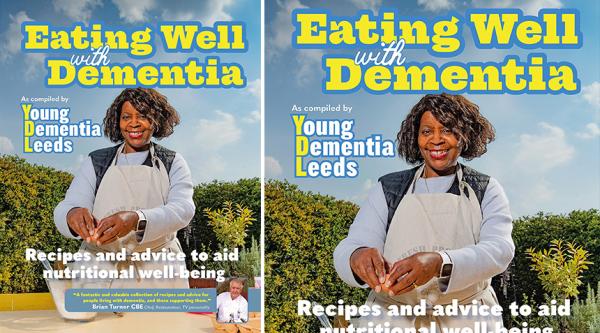Ideas to help a person with dementia who has problems swallowing
From the October/November 2016 issue of our magazine, difficulties in swallowing food become more common as dementia progresses, though they vary from person to person. We asked Talking Point members about helping someone who is having difficulties swallowing (dysphagia).
LYN T said,
'My late husband started to lose his ability to swallow about April 2013. He had a sort of gurgle in his throat and I had to make sure that everything was slightly mashed and served up lots of fish and casseroled chicken – red meat was off the menu, especially mince!
'Pete went into a care home in June 2013 and the food was generally what I had given him. By April or May 2014, Pete's food was much more mashed up with gravy or parsley sauce with fish and lots of mashed potatoes.
'He also had trouble with "hamstering" his food; we had to lightly run our fingers down the outside of his throat to stimulate his swallowing reflex. I gave him jellies to help with his liquid intake. Unfortunately, Pete then had to have his drinks thickened and everything puréed.'
jhind said,
'My wife gradually developed swallowing problems (she has advanced vascular dementia). We have been using an instant food thickening product, a white powder in a large tin.
'It has solved our problem with drinks, and her meals are well mashed to a paste consistency. We use 1.5 teaspoons per drink, well stirred. The product is available on prescription, and can also be bought online, about £7 per tin. Do try it.'
nitram said,
'At this stage I obtained some advice from the speech and language therapist (SALT): check that there is no inflammation or infection in the mouth, rub your finger fairly firmly from the top of the throat under the chin to the jaw, if possible wait for second swallow, taste promotes a swallow, and sweetness is usually the last taste to go.
'Temperature of the food affects the ability to taste, soft ice creams from a machine taste sweeter that frozen ones because they are warmer. Hot drinks should be colder than usual.
'Watch out for food being pouched between cheeks and gum, "fish out" with finger if needs be. Also check that liquids are not being retained in mouth.'
suze said,
'When my mum was reluctant to swallow, we would make a feather-touch on her neck which reminded her to swallow. She was also only eating yoghurts, porridge and ice cream near the end. Another idea is to take one of those pink sponge sticks to moisten mouths and gently squeeze inside the corner of the mouth.'
Read the full discussion thread on Talking Point.
See our factsheet Eating and drinking.
Next issue
Do you have advice about what to do if a person with dementia walks out of shops without paying for goods? Email [email protected]







